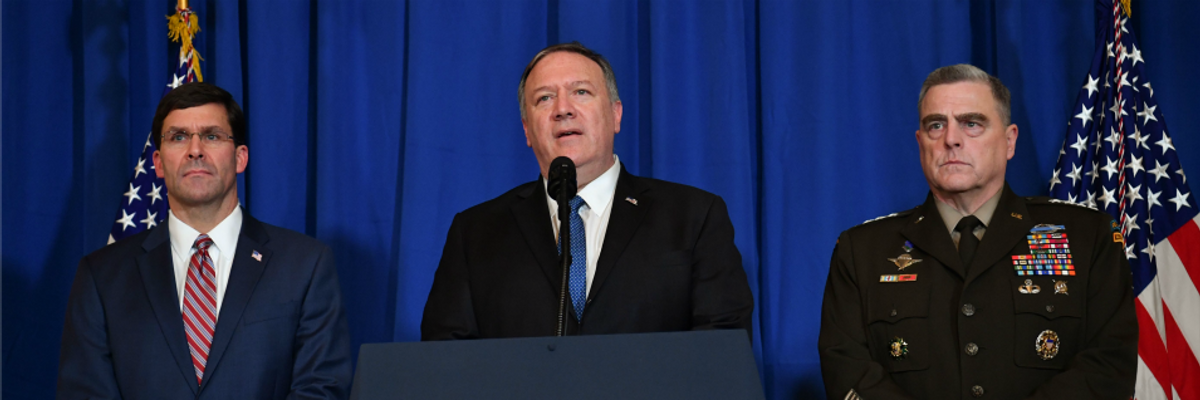Iraqi Prime Minister Adel Abdul-Mahdi on Sunday accused the Trump administration of violating his nation's sovereignty and further heightening tensions in the region after the U.S. bombed several targets in Iraq and Syria, killing at least 25 fighters and injuring dozens more.
"We have previously confirmed our rejection of any unilateral action by the coalition forces or any other forces inside Iraq, and we consider it as a violation of Iraqi sovereignty and a dangerous escalation that threatens the security of Iraq and the region," Abdul-Mahdi said of the U.S. strikes.
"The dangerous escalation in Iraq occurs in the context of the Trump administration's reckless and needless 'maximum pressure' campaign that threatens to make Iraq an all-out battlefield between the U.S. and Iran."
--Sina Toossi, National Iranian American Council
The Pentagon claimed the airstrikes, which U.S. President Donald Trump approved late Saturday, were a "defensive" response to a rocket attack on an Iraqi military base last week that killed an American contractor.
The U.S. blamed the Kataib Hezbollah militia for the attack and pointed fingers at Iran, which the Trump administration said is funding and arming the group.
"We will not stand for the Islamic Republic of Iran to take actions that put American men and women in jeopardy," U.S. Secretary of State Mike Pompeo, a long-time supporter of regime change in Iran, said in a statement following the strikes on Sunday.
Kataib Hezbollah quickly vowed retaliatory action, saying the Trump administration's actions have left it with "no choice but confrontation."
"Trump should know that he will pay a heavy price in Iraq and the countries where his criminal forces are present," the group said.
Asa'ib Ahl al-Haq, an Iraqi militia group allied with Kataib Hezbollah, said "it is our duty to put an end to the U.S. military presence in Iraq through every legitimate method" and called on "political forces to stand against this cowardly aggression."
The latest U.S. bombing campaign in the Middle East prompted urgent calls for deescalation and warnings that the intensifying conflict could spark a full-blown regional war.
Sina Toossi, senior research analyst with the National Iranian American Council, said the U.S. strikes are linked to Trump's longstanding aggressive posture toward Iran and his decision last year to violate the 2015 nuclear accord.
"The dangerous escalation in Iraq occurs in the context of the Trump administration's reckless and needless 'maximum pressure' campaign that threatens to make Iraq an all-out battlefield between the U.S. and Iran," Toossi said in a statement. "Avoiding this scenario requires a broader rethinking of the maximum pressure policy away from mindless saber-rattling to one that opens channels of dialogue with Tehran."
"By reneging on the Iran nuclear deal and pursuing a maximalist goal of denying Iran influence in Iraq and elsewhere, President Trump has set the stage for chaos to overtake large parts of the region," Toossi added. "In its misplaced aim to sanction and isolate Iran, the administration risks yet again plunging Iraq into total chaos."

